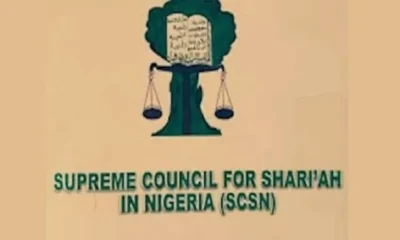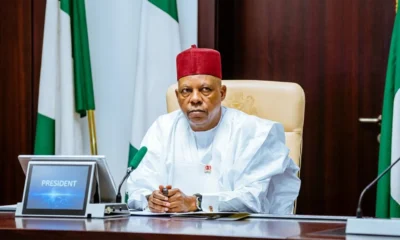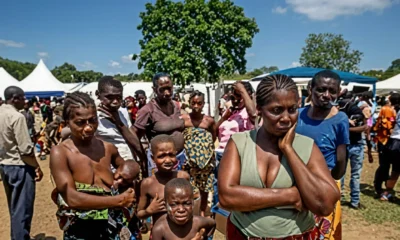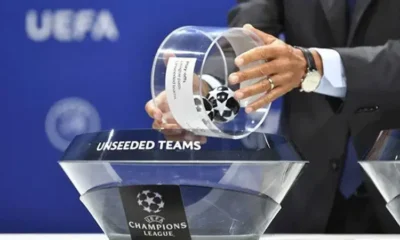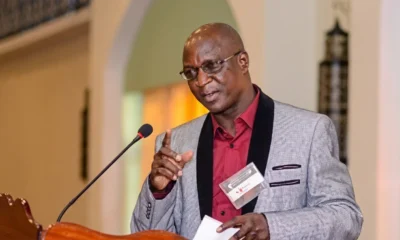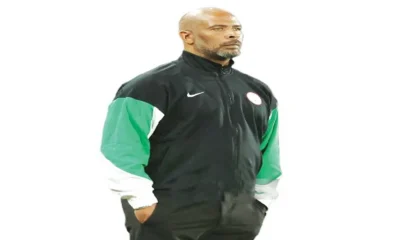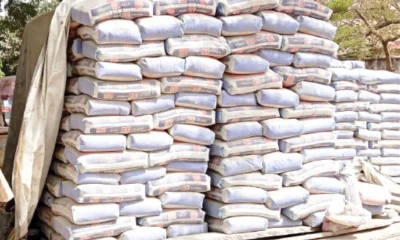African News
Raila Odinga: The man who lost every election but won Kenya’s democracy
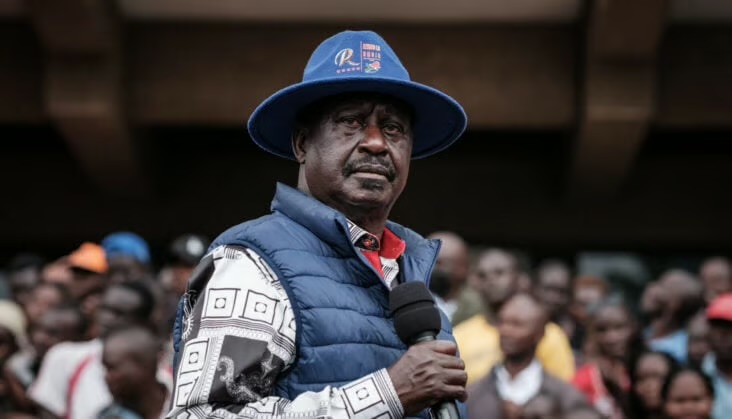
He was jailed, tortured and denied the presidency five times, yet few shaped Kenya’s democracy or embodied its struggle more than Raila.
The death of Raila Odinga, Kenya’s most enduring opposition leader and one of Africa’s most recognisable political figures, closes one of the longest and most turbulent chapters in Kenya’s political history, a life defined by resistance, reinvention and unfinished dreams of reform.
Tortured dissident
He died aged 80 while receiving treatment in India. His death brings to an end a career that spanned six decades, marked by imprisonment, exile, reconciliation and repeated presidential defeats that nonetheless reshaped Kenya’s political and democratic landscape.
Loved and loathed in equal measure, Raila was the son of Jaramogi Oginga Odinga, Kenya’s first vice president and a prominent anti-colonial figure who later broke ranks with Jomo Kenyatta’s government.
Politics was Raila’s inheritance and resistance became his instinct.
His early activism came at a cost. In 1982, after a failed coup attempt against president Daniel arap Moi, he was accused of treason and detained without trial for six years.
In his 2013 memoir, The Flame of Freedom, Raila detailed the torture, physical abuse and psychological intimidation he endured during his detention.
He described being blindfolded for long stretches, confined in dark, airless cells and subjected to mock executions and beatings by security officers at Nairobi’s Nyayo House, the notorious torture chambers where many of Moi’s critics were broken or silenced.
It would be the first of several imprisonments and periods of exile that hardened his reputation as a defiant dissident.
In the 1990s, as Moi’s one-party rule crumbled, Raila emerged as one of the architects of Kenya’s multiparty democracy.
His fiery speeches, populist instincts and ability to mobilise crowds made him a formidable force.
Defiance and pragmatism
From the reintroduction of multiparty politics in 1992 to his final campaign in 2022, Raila contested five presidential elections and lost all of them.
Each defeat deepened Kenya’s divisions but also expanded its democratic vocabulary.
His most consequential run came in 2007, when disputed results sparked post-election violence that left more than 1,000 people dead.
The crisis ended with a power-sharing deal brokered by former UN secretary general Kofi Annan, making Raila the prime minister under president Mwai Kibaki from 2008 to 2013.
The coalition brought fragile stability but also blunted Raila’s reformist edge.
Analysts say he came to embody both defiance and pragmatism, a man who fought the system so long that he eventually became part of it, though always as its conscience.
”His political capital gave him capacity to cause both political and economic instability in Kenya,” says Dismas Mokua, a presidential politics analyst in Nairobi.
“That is why all presidents in Kenya accommodated his personal interests normally camouflaged as national interests,” he tells The Africa Report.
Handshake politics and contradictions
In 2018, after another contested election, Raila stunned allies and rivals by striking a truce with then president Uhuru Kenyatta in what is now famously known as the ‘handshake’.
The pact ended months of street protests and ushered in a period of political calm. But it also blurred opposition lines and divided his base.
Together, the two leaders launched the Building Bridges Initiative (BBI), a controversial constitutional reform that sought to expand executive power and share resources more equitably.
The Supreme Court eventually struck it down, dealing Raila one of his last major political setbacks.
Raila’s final political act was as surprising as any in his long career.
On 7 March, his legacy of political handshakes took one last turn when he and President William Ruto formally signed a working agreement, a partnership that few in Kenya’s bitterly divided political scene had seen coming.
The two announced a pact to “work together for national unity”, a move that stunned even Raila’s closest allies.
To some, it was the gesture of an elder statesman seeking stability after years of protest and division.
To others, it marked a quiet retreat from the defiance that had defined him for decades.
‘Darkest scar in his political career’
The handshake gave Ruto political breathing room and blunted the energy of Kenya’s opposition, leaving Raila’s movement divided over whether their hero had made peace or simply surrendered.
“Raila Odinga’s ability to leverage his political support base to enter into coalition arrangements with the government of the day, despite failing to win the presidency (in 2007, 2013, 2018 and 2022), also invited the most scathing criticism against him,” analyst Ngala Chome tells The Africa Report.
“In his elite pact with Ruto, Raila perhaps drew the darkest scar in his political career, as he was perceived to have betrayed a mass national reform movement.”
Still, his influence extended beyond Kenya. From 2018 to 2023, he served as the African Union’s High Representative for Infrastructure Development, championing regional integration and transport corridors across the continent.
A complicated legacy
To his admirers, Raila was Kenya’s Nelson Mandela, the man who refused to give up on democracy, even when the odds and the institutions were stacked against him.
He gave voice to marginalised communities, challenged rigged elections and held the state to account.
To critics, he was a perpetual agitator whose populism at times destabilised markets and institutions, and whose alliances with the same elites he once opposed betrayed his reformist roots.
“Raila’s life was a study in contradiction,” says an international development adviser currently serving the Ruto administration.
“He fought dynasties but came from one. He championed the hustlers but dined with the establishment. Yet without him, Kenya’s democracy would be unrecognisable.”
Unfinished battles
In his final years, Raila sought to extend his influence beyond Kenya.
Earlier in 2025, he campaigned unsuccessfully to become chair of the African Union Commission, a move seen as his last major political ambition.
Until his death, he remained a reference point in Kenya’s fractious politics, frequently consulted by both government and opposition figures.
Even in death, his presence looms over Kenya’s political future.
His passing leaves not only a personal absence but an institutional one, a vacuum within the opposition that no clear figure seems ready to fill.
Independent political analyst Rose Mumanya says Raila’s death exposes deep uncertainty inside his Orange Democratic Movement (ODM), long anchored by his charisma and networks.
“Within ODM there hasn’t been enough effort to come up with a succession plan for what the party looks like without Raila.
“The biggest concern now is whether it can hold itself together, given the fragmentations we’ve already seen in the past year,” she says.
Raila’s death also reshuffles Kenya’s political map, opening space for new alliances and succession battles across both government and opposition.
For Mumanya, the challenge is twofold: whether Raila’s party can preserve his legacy and if the wider opposition can resist splintering in his absence.
“There will be attempts by other politicians – people like [impeached former deputy president] Rigathi Gachagua and others in the opposition – to fill this space,” she warns.
“Ruto’s alliance with Raila allowed him to govern without a strong opposition. But now, without Raila, that balance could change.
“The question is: who can step into that role? Can ODM survive without him?”
For Mokua, the “probability of ODM collapsing is high and Kenya will now witness meritocracy in Mt Kenya and Luo Nyanza”. (The Africa Report)
-

 News19 hours ago
News19 hours agoNo Power Can Stop Muslims From Practising Shariah – Shariah Council
-

 Business16 hours ago
Business16 hours agoFG deepens CREDICORP, targets wider coverage, disbursements
-

 News16 hours ago
News16 hours agoOver 100 terrorists storm Benue villages, kill 150 – Witness tells court
-

 Sports10 hours ago
Sports10 hours agoUCL Round of 16: Osimhen to face Liverpool as Real Madrid, Man City renew rivalry
-

 News16 hours ago
News16 hours agoNorthern Christian leaders drop ‘CAN’ title, adopt old identity
-

 Sports19 hours ago
Sports19 hours agoChelle justifies $130k salary demand, denies exit threat
-

 Business16 hours ago
Business16 hours agoBag Of Cement Climbs To N11,000
-

 News17 hours ago
News17 hours agoEFCC detains Ozekhome over ‘Tali Shani’ UK property affair



